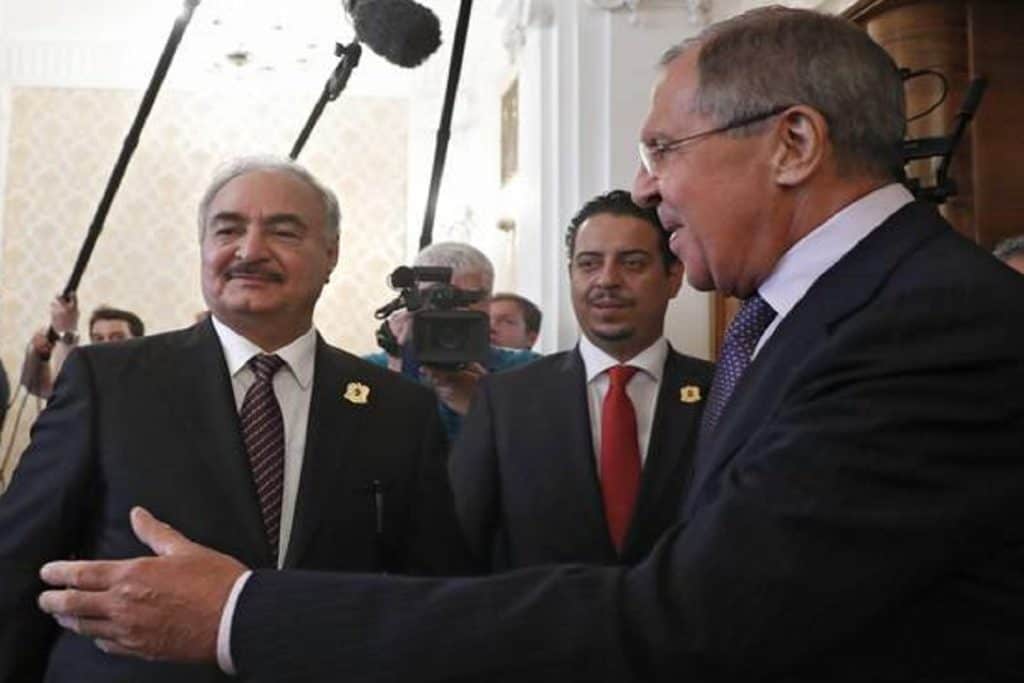By Denis Korkodinov
Moscow’s close attention to Libya is caused by the need for increased Russian influence in the Middle East as a whole, as well as the fact that the Kremlin considers Khalifa Haftar as a person who can lead Libya in the foreseeable future.
The Libyan file was not relevant for Russia, since the moment of the overthrow of the regime of Muammar Gaddafi in 2011. The countries of the North Atlantic Alliance then made it clear that they would not tolerate Moscow’s interference in Libya. However, the situation changed dramatically when Russia began to provide assistance to Syria.
As the “policy of Middle East success” was realized, Moscow began to spread its influence to other countries of the region. Vladimir Putin seeks to use his experience as a “negotiator” in order to organize the negotiation process between all parties to the Libyan conflict and thus strengthen Russia’s position in the Middle East.
Under Muammar Gaddafi, Libya was a reliable partner of the USSR, thanks to which Tripoli received modern Soviet weapons and investments. In just 12 years since the signing of the first Soviet-Libyan arms contract in the early 1970s, there were more than 11,000 military instructors from the Soviet Union in Tripoli, Benghazi, Tobruk, Misrat and other Libyan cities.
Muammar Gaddafi’s first visit to Russia took place in 2008. During a meeting with Vladimir Putin, the leader of the Jamahiriya managed to agree on new investments and military assistance. The overthrow of the Libyan regime and the subsequent assassination of Muammar Gaddafi made significant changes to Russian plans. However, in April 2015, the Prime Minister of the Tobruk government, Abdullah al-Thani, officially assured Moscow that the previously concluded Russian-Libyan contracts could still have legal force. This was an additional reason why the Kremlin is now showing great interest in Libya.
Since then, Moscow has sought to use its international influence, including in the UN Security Council, to boycott any decisions aimed at military intervention in Libyan affairs. And now, just as Syria opened Russia’s doors to the Middle East, Libya is opening its doors to North Africa.
The fact that Mikhail Bogdanov, deputy head of the Russian Foreign Ministry, who is responsible for the entire Middle East, became the main Russian curator for Libya, indicates that Moscow takes the Libyan cause quite seriously. Its primary task is to maintain the territorial integrity of Libya, for which it is necessary to organize the negotiation process between all parties to the conflict and come to a common denominator with them.
It is worth noting that Russia has much more opportunities in Libya than the United States or France, since it is not formally tied to any of the opposing blocs. Meanwhile, Russia cannot afford to cross the “red line” and begin a full-scale military campaign similar to what it managed to do in Syria. The main reason for this is that the central government in Libya, led by Fayez al-Sarraj, rejects Russian military involvement.
And if Moscow decides to take the initiative by introducing regular troops into Libyan territory, this could well provoke a scandal, as a result of which Russia will be declared an aggressor. Therefore, the only thing the Kremlin can do is organize negotiations between the Government of the National Accord and the Libyan National Army, acting as an intermediary.
(The opinions expressed in this article are solely those of the author and do not necessarily reflect the views of World Geostrategic Insights)







